July 2019 in “Indian dermatology online journal” Alopecia areata can show unusual red-dotted vessels and dithranol treatment may mask typical patterns.
 13 citations,
December 2001 in “Dermatologic therapy”
13 citations,
December 2001 in “Dermatologic therapy” Alopecia areata causes varying hair loss patterns, affecting hair, nails, and possibly glands, with treatment outcomes depending on disease duration and extent.
 15 citations,
May 2017 in “JEADV. Journal of the European Academy of Dermatology and Venereology/Journal of the European Academy of Dermatology and Venereology”
15 citations,
May 2017 in “JEADV. Journal of the European Academy of Dermatology and Venereology/Journal of the European Academy of Dermatology and Venereology” High-dose corticosteroids and methotrexate had a modest effect on severe childhood alopecia, but side effects and relapse were concerns.
May 1979 in “Archives of Dermatology” Alopecia can be linked to autoimmune issues, vitiligo, nail problems, and sometimes cancer treatments.
 2 citations,
January 2017 in “Clinical and medical investigations”
2 citations,
January 2017 in “Clinical and medical investigations” Herbal lotions are effective for severe hair loss, with a 64.8% success rate, but relapse is common and long-term management requires allergen control and possible corticosteroid use.
 104 citations,
March 1987 in “Journal of The American Academy of Dermatology”
104 citations,
March 1987 in “Journal of The American Academy of Dermatology” Minoxidil helps hair growth in 63.6% of alopecia patients, with 27.3% having excellent results.
 29 citations,
August 1985 in “Contact Dermatitis”
29 citations,
August 1985 in “Contact Dermatitis” Minoxidil can cause allergic reactions like burning, itching, and red bumps.
 130 citations,
February 2018 in “Journal of Investigative Dermatology”
130 citations,
February 2018 in “Journal of Investigative Dermatology” Tofacitinib may help treat severe hair loss, but more research is needed.
 222 citations,
September 2016 in “JCI insight”
222 citations,
September 2016 in “JCI insight” Tofacitinib is safe and effective for severe alopecia areata, but hair loss may return 2 months after stopping treatment.
2 citations,
October 2014 in “Orbit” Lacrimal gland inflammation and alopecia areata can happen together due to autoimmune issues.
5 citations,
July 2017 in “International journal of endocrinology and metabolism/International journal of endocrinology and metabolism.” Two siblings with a genetic mutation had a form of rickets that doesn't respond to vitamin D.
 28 citations,
October 1978 in “Archives of dermatology”
28 citations,
October 1978 in “Archives of dermatology” Corticosteroids may effectively regrow hair in Alopecia Totalis with manageable side effects.
 30 citations,
March 2010 in “European Journal of Dermatology”
30 citations,
March 2010 in “European Journal of Dermatology” Hair loss in elderly women is often caused by various factors, including hormonal changes after menopause.
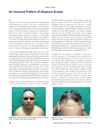 January 2014 in “International Journal of Trichology”
January 2014 in “International Journal of Trichology” A man had an unusual type of hair loss that didn't match known patterns and didn't improve with treatment.
11 citations,
May 2013 in “Journal of the American Academy of Dermatology” Hydroxychloroquine helped two people regrow hair lost from alopecia totalis.
 1 citations,
August 2022 in “JAAD Case Reports”
1 citations,
August 2022 in “JAAD Case Reports” A woman's complete hair loss condition improved after recovering from COVID-19.
 May 2024 in “Journal of cosmetic dermatology”
May 2024 in “Journal of cosmetic dermatology” Tofacitinib is an effective and safe treatment for alopecia areata.
 January 2024 in “Pediatric rheumatology online journal”
January 2024 in “Pediatric rheumatology online journal” Early genetic testing and JAK inhibitors can help treat systemic inflammation in SAVI patients.
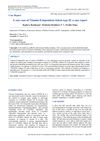 August 2019 in “International journal of contemporary pediatrics”
August 2019 in “International journal of contemporary pediatrics” A child with a rare type of rickets showed some improvement with high doses of vitamin D, but such conditions often respond poorly to treatment.
 16 citations,
April 1984 in “Archives of Dermatology”
16 citations,
April 1984 in “Archives of Dermatology” Topical minoxidil can help hair regrowth in alopecia areata patients, but maintaining the growth after stopping treatment is inconsistent.
 February 2011 in “Annales de dermatologie et de vénéréologie”
February 2011 in “Annales de dermatologie et de vénéréologie” Tofacitinib shows promise for treating severe alopecia areata with good safety and effectiveness.
2 citations,
July 1998 in “International Journal of Dermatology” We need a safe, reliable way to stop severe hair loss.
 19 citations,
May 2019 in “JAMA dermatology”
19 citations,
May 2019 in “JAMA dermatology” People with alopecia areata have similar overall death rates as others but higher risks of death from self-harm, psychiatric issues, and lung cancer in certain cases.
 September 2023 in “Journal of the American Academy of Dermatology”
September 2023 in “Journal of the American Academy of Dermatology” Children with alopecia areata, especially with Down syndrome or thyroid issues, should be screened for thyroid disease.
 April 2017 in “Childhood Kidney Diseases”
April 2017 in “Childhood Kidney Diseases” Azathioprine can cause severe blood issues and hair loss, needing careful monitoring and possible discontinuation.
 18 citations,
February 2001 in “Journal of International Medical Research”
18 citations,
February 2001 in “Journal of International Medical Research” Hairgain® significantly increased hair growth and was well-tolerated by individuals with hair loss.
1 citations,
November 2022 in “Journal of pharmaceutical negative results” Alopecia areata is an autoimmune condition causing patchy hair loss, with treatments focusing on immune system regulation and hair regrowth.
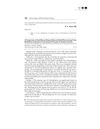 January 2007 in “Yearbook of Dermatology and Dermatologic Surgery”
January 2007 in “Yearbook of Dermatology and Dermatologic Surgery” Intramuscular triamcinolone and pulse therapy with oral predonine are effective for alopecia areata with manageable side effects, but better relapse prevention is needed.
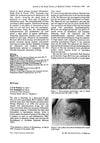 2 citations,
February 1981 in “Journal of the Royal Society of Medicine”
2 citations,
February 1981 in “Journal of the Royal Society of Medicine” A three-year-old girl survived a rare serious infection caused by BCG vaccination, which improved after treatment with a leprosy drug.
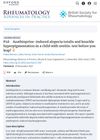 November 2024 in “Rheumatology Advances in Practice”
November 2024 in “Rheumatology Advances in Practice” Monitor for early signs of azathioprine toxicity and check blood counts regularly.






















